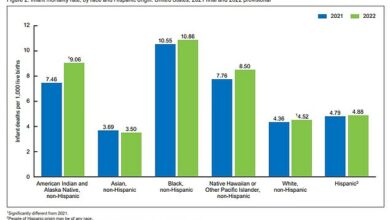Patients at RISK as more doctors cut working hours to improve work-life balance, medical watchdog warns




Doctors are increasingly cutting back on their working hours and refusing to work overtime in a bid to improve their work-life balance, the medical watchdog has announced.
The General Medical Council warns that the resulting staff shortages pose a risk to patients unless urgent action is taken to address the trend.
Blame is being placed on burnouts and years of declining job satisfaction, with doctors choosing to ‘take matters into their own hands’.
The GMC’s annual report on doctors’ work experiences in the UK found that 19 per cent reduced their working hours last year, compared to 8 per cent in 2021.
In addition, 41 percent refused to take on additional work in 2023, compared to 23 percent in 2021.

Doctors are increasingly cutting their working hours and refusing overtime as they seek to improve their work-life balance, the General Medical Council has revealed (file image)
It says it may be better for patient safety if exhausted doctors choose not to work extra hours.
But it also says: ‘If this trend is not addressed, the capacity of the already overloaded health care system could be further reduced, putting patients at risk.’
The news could come as a setback for ministers as Labour pledged to increase evening and weekend shifts to help clear the backlog of care in the NHS.
According to the latest data, one in three doctors (33 percent) are “struggling,” meaning they regularly work beyond their agreed working hours and feel they cannot cope with their workload.
Nearly a quarter of doctors (23 percent) took leave due to stress in 2023.
The GMC was concerned about the high percentage of doctors saying they were ‘struggling’, admitting this poses risks to patients and the rest of the workforce.
In 2023, 53 percent of physicians reported being satisfied with their daily work – a sharp decline from 70 percent in 2021.

The GMC’s annual report on doctors’ work experiences in the UK found that 19 per cent reduced their working hours last year, compared to 8 per cent in 2021 (file image)
Particular concerns have been raised about people in training, who are ‘at greater risk of burnout than any other group’.
They are also the group most likely to consider taking their skills abroad.
And almost half (48 percent) of GPs are having a hard time.
English GPs are fed up and are already going on strike over their new contracts.
Some have threatened to cut the number of appointments they offer by half.
Charlie Massey, chief executive of the GMC, said: ‘We know that when doctors are overworked and undersupported it poses a risk not just to doctors themselves, but also to patient care.
“These data show that more and more physicians are taking matters into their own hands, not only to protect their own health and well-being, but also that of their patients.”

According to the GMC findings, almost half (48 per cent) of GPs are struggling with their workload and work-life balance (file image)
The report says employers need to develop more compassionate leadership, create a more supportive work environment based on offering induction programs for new employees, and demonstrate that all healthcare professionals are valued.
Mr Massey added: ‘Employers and healthcare organisations urgently need to respond to the needs of their staff.’
An NHS England spokesperson said: ‘We have worked hard to improve the training and working lives of doctors and we know there is still much work to be done, particularly in light of the risk of burnout.’




